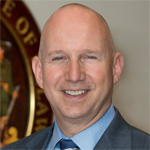
Facebook Twitter Google+ Instagram Pinterest Flickr YouTube
Written on: September 20th, 2013 in Helping Our Neighbors
We have not done nearly enough to give Americans control over their financial destinies. It’s time to start educating Americans about personal finance.
Many of today’s economic proposals from cities, states, and the White House focus on growing the middle class, and for good reason. But we are not paying enough attention to one of the major barriers to joining the middle class: personal finance know-how.
Helping people understand their finances is absolutely essential in today’s economy. In an era when wages are pressured by global competition and technological change, having a command of personal finance basics can make all the difference to America’s working families. All Americans need to feel comfortable planning for retirement, managing their rent payments, and keeping up with their student loans.
We have not done nearly enough to give Americans control over their financial destinies. Indeed, half of all Americans say they could not pull together $2,000 in 30 days to fix a car or pay an unanticipated medical bill, according to a previous study by the National Bureau of Economic Research. When faced with such events, millions fall into the clutches of predatory financial institutions, trapped by exorbitant rates charged by payday lenders or unscrupulous creditors. Too many families find themselves locked in a debt cycle they were never taught to avoid. Emotional stress, depression, and divorce too often follow. The most recent Census Bureau data shows that half of all U.S. households earn less than $52,000 a year. These families often face unexpected expenses that can quickly turn into crises.
In a national Harris Interactive survey released this week, nearly a third of U.S. adults admit their lack of knowledge has led to poor financial decisions and more than 40% acknowledge they’ve missed out on good financial opportunities as a result.
How do we address these problems? We need to provide financial education and support. The private and public sector — businesses, governments, educators and non-profits — must work together to achieve this goal.
To be sure, knowing how to put together a personal budget or how a credit score works won’t raise a person’s income. But it can make a paycheck go further and show families how to avoid decisions that cause long-term harm. While some of today’s financial stressors will persist until the economy improves, a better grasp of the financial basics can make a huge difference to millions right now.
In Delaware, we have partnered with United Way of Delaware since 2011 to offer citizens of our state access to personal financial coaching. That program, “Stand By Me,” provides information about non-predatory financial products, as well as help with financial issues related to post-secondary education, including financial aid and student loan debt.
Staff is trained to be objective, non-judgmental, and confidential. Our businesses offer financial coaching onsite as an employee benefit and our community college offers it to their students. We’re testing a new curriculum for K-12 students as well. Our coaches are not simply number crunchers — they help people plan and provide moral support to carry out their goals.
Of the almost 3,000 Delawareans who have worked with a coach since 2011, 82% reviewed their credit for the first time, 53% worked on household budgets, and added savings to their budget, 42% took action to improve their credit. But ours is just one promising approach and we need more help from every corner, including the private sector.
In Delaware, Bank of America, JPMorgan Chase, Citi, and Wells Fargo have supported the “Stand By Me” personal financial empowerment program. And beyond Delaware, Bank of America is focused on making complex financial concepts easy to understand for people of all ages and recently joined with K-12 education innovator Khan Academy to create free web-based financial lessons accessible to everyone at bettermoneyhabits.com. Khan Academy has become the face of K-12 online education in America, teaching more than six million students every month.
While many financial institutions and other companies have taken action to educate their customers about financial literacy, government and business leaders must do more. Delaware is home to many of this country’s leading financial institutions, and I’ll be reaching out to leaders of these companies to bring their best ideas to the table.
I look forward to enlisting state, local, and federal level officials and private sector leaders. Together, we must empower Americans to be effective stewards of their own economic destinies.
Government and business leaders must stop thinking of financial literacy as courses and brochures and start thinking about it as an essential service for the success of their employees and constituents. Delaware’s “Stand By Me” partnership has shown that this investment can be affordable through public-private partnerships and collaboration. Costs can be shared. And just as society saves money when people receive health services that prevent them from getting sick in the first place, it will be less expensive if we help individuals and families avoid personal financial crises.
This blog was originally published in Fortune Magazine.